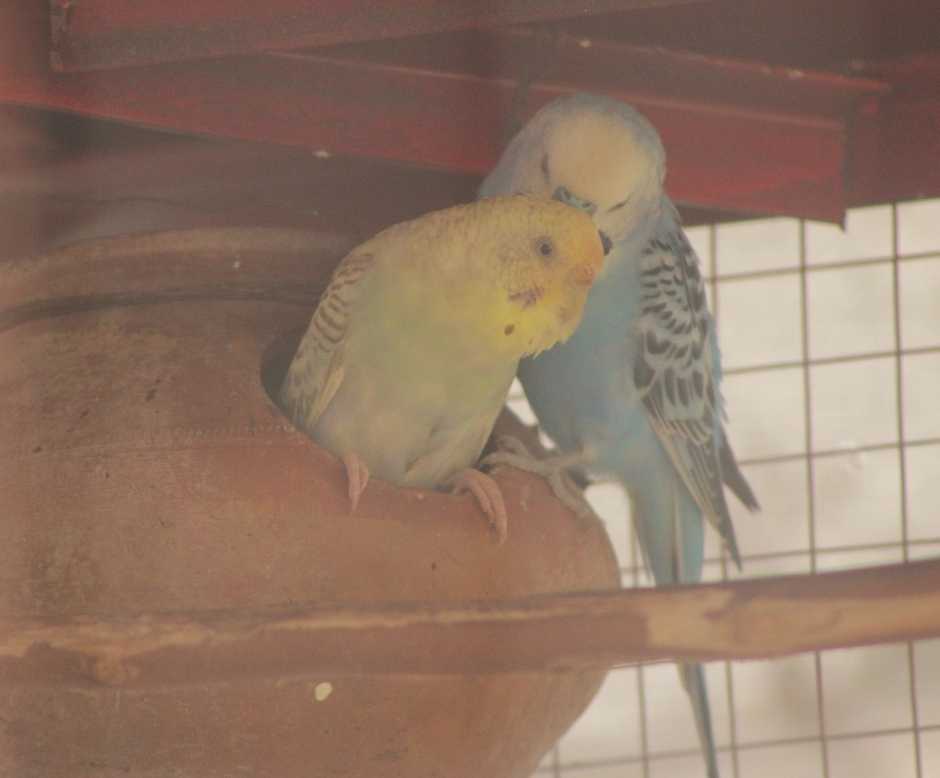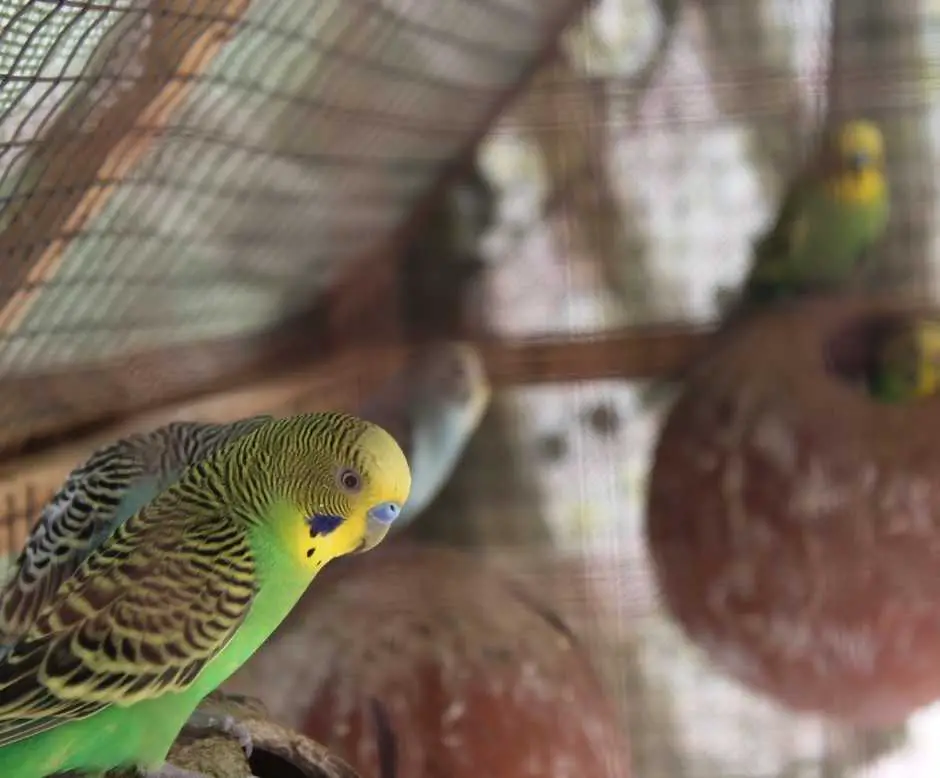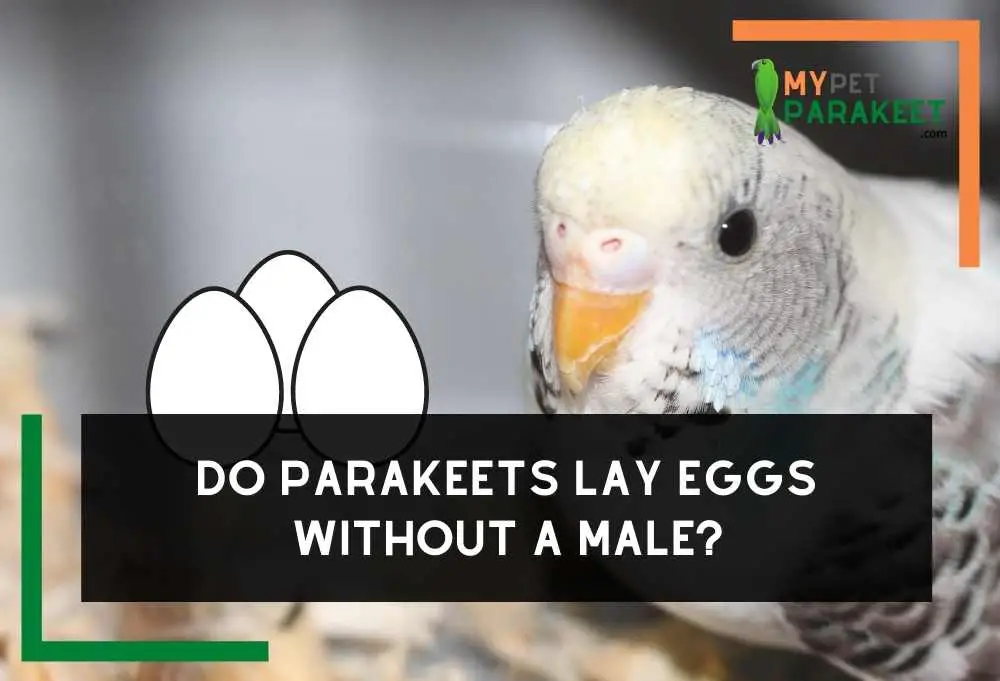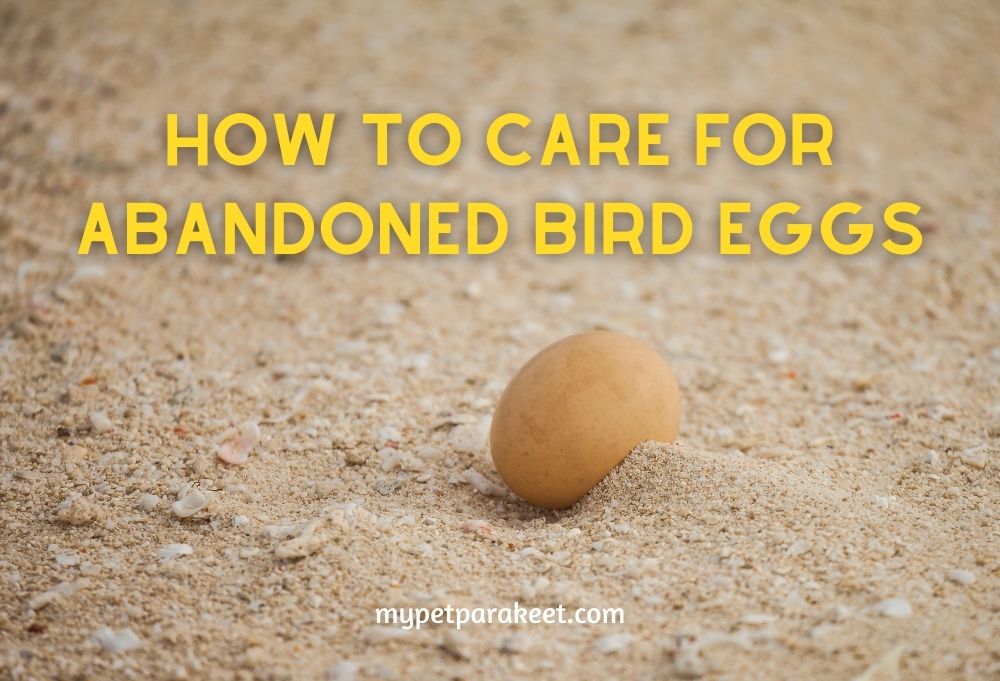Egg-laying is an expected behavior of wild parakeets and pet breeding pairs of parakeets. This normal reproductive behavior will often happen during springtime for wild parakeets as the abundance of food and mild temperature will support breeding behaviors and young birds.
For pet parakeets, egg-laying can happen all year round due to the stable environment and constantly high food supply. You may not expect eggs if you have a solo female parakeet or multiple female parakeets without males.
But a female parakeet can lay eggs without the presence of a male! A female parakeet will release their eggs whether they are fertile or not. Without a male to mate with, the egg that is laid will be unfertile.
Keep reading, and we’ll discuss why this happens, when you should be concerned, and how to manage an egg-laying parakeet so that they remain physically and mentally healthy.
Female Parakeet Breeding Cycle
Once your female parakeet is of sexual maturity, her body will begin to process breeding behaviors. Budgies will lay 2-3 clutches per year in the wild, and each clutch will have 4-8 eggs. In captivity, this amount of clutches can differ.
Some solo females may never lay a single egg, not having the correct stimulation to do so. Others may lay eggs, and they may lay a lot of eggs, to the point it negatively affects their health. Pet parakeets are provided with a stable environment and a consistent supply of high-energy food. If properly stimulated, they can lay more eggs than they typically would in the wild.

On the other hand, the lack of seasonal changes to their diet and their consistent light schedule and temperatures could inhibit them from laying all together! These changes in the environment and food supply can be what drives breeding hormones.
It is not only the environmental stimuli that will cause egg-laying. Sexual stimuli will also contribute. So without a male parakeet to provide this stimulation, why would a female parakeet lay eggs?
Why Is My Parakeet Laying Eggs Without A Mate?
As mentioned above, your parakeet may simply be of breeding age and be stimulated by her environment and diet to lay some eggs.
She may also be receiving social and sexual stimulation that she would usually receive from a male from elsewhere. For example, suppose she is housed with other female parakeets. In that case, they may show breeding behaviors between them that are stimulating enough for her body to undergo the reproductive process.
The other common cause of sexual stimulation for solo female parakeets is actually us, their owners. Part of a parakeet’s courtship behavior that precedes breeding and kick starts the hormones is “allopreening,” which is basically mutually grooming.
When you pet your parakeet, touch their feathers, and scratch their head, this itself can be sexually stimulating to them. Of course, this is not our intention as owners. Still, we must remember that the way we communicate and show affection is different from a parakeet!
Signs that your parakeet is viewing your touch as sexual stimulation include them grooming you, such as grooming your hair when sitting on your shoulder or regurgitating food on you (which is also a courtship behavior). This post, will tell you the difference between regurgitation and vomiting.
Also, you or another bird may not be the cause of such stimulation. Birds can be stimulated by inanimate objects too! While the topic of your pet parakeets’ sexuality may be awkward for you, learning their motivations will help you understand their behaviors. Check out this great article on this particular behavior.
Can A Parakeet Lay Too Many Eggs?
The short answer to this question is, yes! In fact, parakeets and other common pet birds such as cockatiels and lovebirds are quite prone to being chronic egg layers.
Chronic egg-laying can have the following health impacts:
- Egg binding – excess egglaying will deplete your parakeet’s physical resources, particularly calcium, protein, and general energy. Without enough available resources to facilitate the development and the passing of an egg, eggs can get stuck in a female’s oviduct and become a blockage.
- Hyperlipidemia – overproduction of eggs causes increased fats and proteins in the parakeet’s blood. This can lead to a thickening of the blood, which will increase your parakeet’s risk of having a stroke. It’s often called a “yolk stroke” due to the connection to chronic egglayer.
- Egg yolk peritonitis – this condition may arise if a reproductive disease is developed from chronic egglaying. Peritonitis is the inflammation of the membrane lining of the abdomen. Egg yolk peritonitis occurs when a developing egg falls into the body cavity and causes inflammation.
- Malnutrition – laying eggs uses many nutrient resources, particularly calcium, a key component of eggshells. Calcium is vital for the absorption of other important nutrients os lack of calcium can result in many essential nutrients not being absorbed and the body suffering from malnutrition, regardless of consuming enough good food.
- Behavioral issues – a female parakeet dead set on having babies can experience wild behaviors driven by hormones. You may view this as aggression towards you or other birds and territorial behavior around her nest.
Of course, all of this sounds very scary, but chronic egg-laying can be managed with some understanding. Read our comprehensive guide on controlling unwanted egg-laying.
Supporting An Egg Laying Parakeet

Diet
As we established above, laying eggs take a lot out of your female parakeet! To support her during this time, you need to ensure her diet has all she needs to thrive.
Make sure she is getting extra protein and fat to support the energy requirements of laying an egg. Extra calcium in the form of a supplement will also help her a lot.
Adding an electrolyte mix to her water will also help you stay hydrated and invigorated.
Read more about a parakeet’s breeding diet here.
Husbandry
Laying some eggs is a natural behavior for your female parakeet! Instead of being afraid of her normal behaviors, adjust how you care for her instead. Provide her with a nestbox so she can express her natural nesting behaviors. If you do not wish to have any babies, keep her separated from males or do not let her incubator fertile eggs.
Health
A parakeet who lays eggs regularly has extra pressure on her body. Take extra care to monitor her health. If you are at all concerned, take her to see your vet. Vets are professionals who can ensure your breeding-age female stays in good health, especially while she lays eggs!








